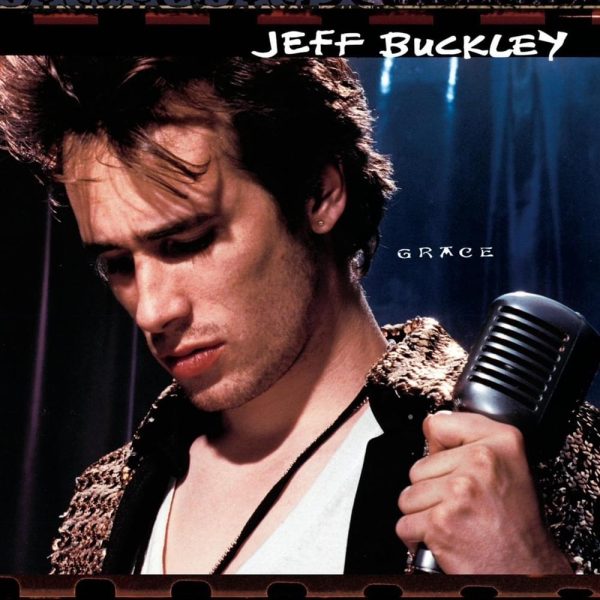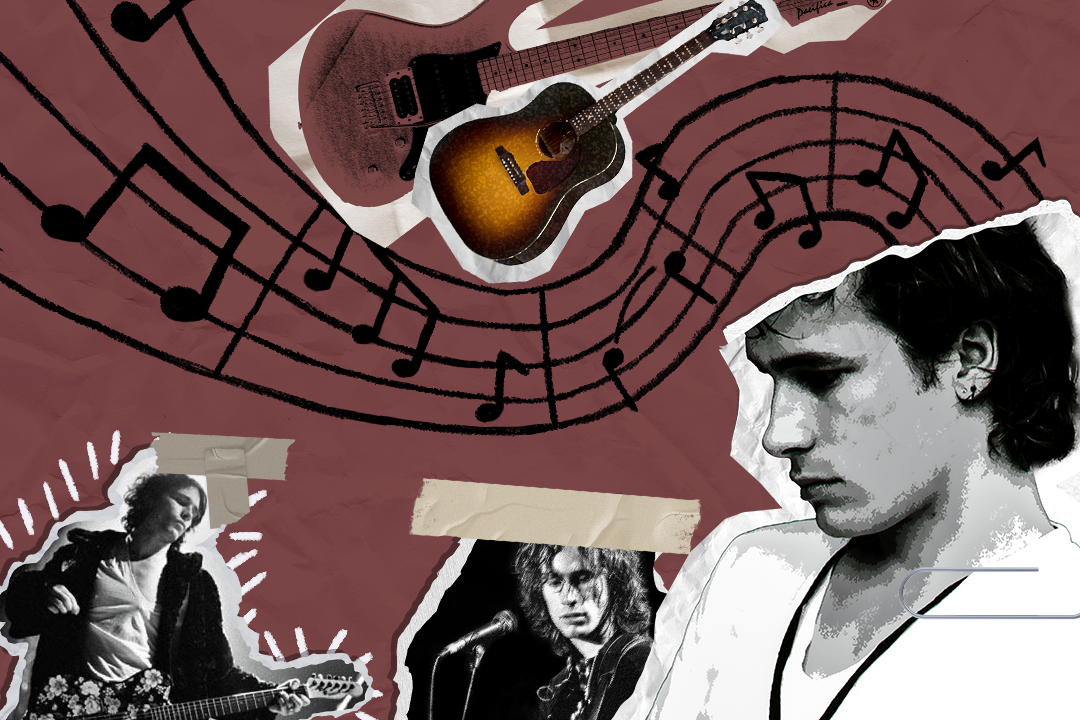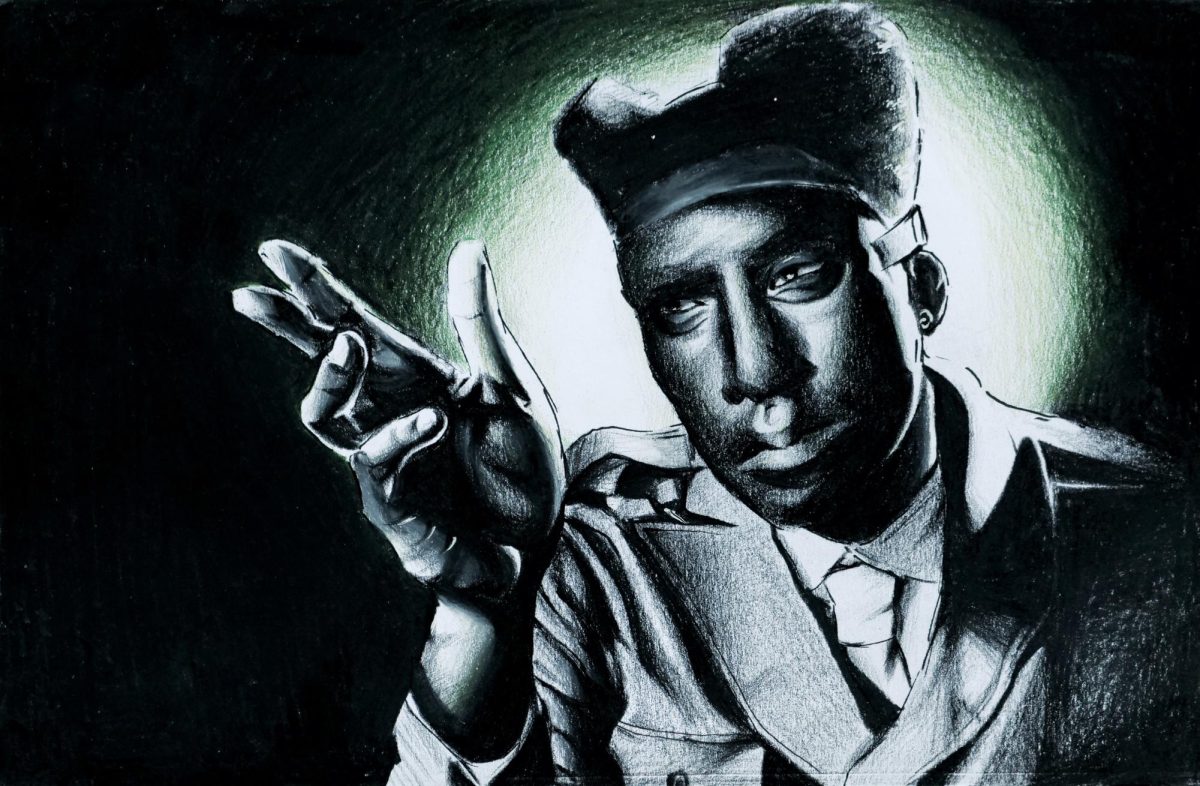Next year will mark the 30th anniversary of Jeff Buckley’s album, Grace, and 27 years since the singer-songwriter, just 30-years old at the time, passed away from an accidental drowning in the Mississippi River.
At the time of his death, Buckley had been working on a follow-up to Grace, a debut that was well-received by critics (Entertainment Weekly named it one of its ten best albums of 1994), but sold poorly.
However, in the years since, the album — featuring soulful lyrics, rumbling vocals, and simmering guitar licks — has sold millions of copies (2,560,000 units to date); been added to the Library of Congress’s National Registry (for the song “Hallelujah,” in 2013); and is frequently named one of the best albums of all time.
Wildcat staff writer and Jeff Buckley fan Alexis Cradduck compiles a list of her five favorite songs from the 2004 reissue Grace (Legacy Edition).

-5-
“Forget Her” (track 11)
Slow drums begin with the clean sound of short strums on the guitar and Buckley begins with the lyrics, “While this town is busy sleeping, / All the noise has died away.”
In “Forget Her,” Buckley laments about a toxic relationship that he feels he cannot leave. A woman coerced him into love, but he struggles to find a way out of the relationship. Acknowledging that “she was heartache from the day that I first met her,” Buckley continues to love this woman even though he knows she will eventually hurt him (“Her love is a rose petal, pale and dying,” he sings). As the guitar riffs slowly ascend and then increase in tempo, they parallel the anxiety Buckley feels as he falls deeper into the relationship.
Touching on many aspects of “push and pull” relationships, “Forget Her” conveys Buckley’s first-hand experience of how agonizing being manipulated is. His masterful singing and guitar-playing are captivating on this track.
-4-
“Grace” (track 2)
“Grace” starts with an upbeat pop-like lick, a contradiction to the song’s opening lines:
There’s the moon asking to stay
Long enough for the clouds to fly me away
Well it’s my time coming, I’m not afraid, afraid to die
My fading voice sings of love
But she cries to the clicking of time, oh, time
Midway through the song, Buckley sings, “it reminds me of the pain, the pain I might leave behind,” showing that even if he is at peace with death, he is still afraid of the mourning that others will endure.
When Buckley repeatedly sings “wait in the fire” he implies that waiting in the metaphorical fire can burn us — if we allow ourselves to wallow in self-pity and sadness, those are the places we will be in forever.
Four minutes into the song, the tempo increases, reflecting his desire to find the meaning in his life, culminating in the reveal that in the end, all will be well. By the conclusion of the song, Buckley makes his message of “waiting in the fire” clear: get out of the “fire” of self pity.
-3-
“Eternal Life” (track 9)
Fading in, a distorted guitar. Drums are layered and quick. “Eternal Life” is chaos compared to the album’s other songs.
“Eternal Life” focuses on the struggles of being human. It starts off with a heavier rock style, an aggressive guitar. By asking “as your fantasies are broken in two, did you really think this bloody road would pave the way for you?” Buckley claims that finding a purpose in life is more difficult than people realize as some have their life “carved out” for them. In contrast, Buckley emphasizes that in reality, people have to work to go to the top, and describes the brutal competitiveness of making their way up. “Racist angry men, what have you done…you’ve made a killer of your unborn son” conveys that surrounding oneself with hatred can lead to their birth into the same hateful lifestyle.
The most telling lyrics are in the bridge,
There’s no time for hatred, only questions
What is love, where is happiness
What is life, where is peace?
When will I find the strength to bring me release?
All familiar and relatable questions we ask ourselves.
-2-
“So Real” (track 5)
In “So Real,” Buckley reminisces about his lover with the repeated guitar riffs. When he repeats the lyrics “Oh, that was so real,” he describes the real and pure love he experienced. Through the lyrics, “And I couldn’t awake from the nightmare that sucked me in and pulled me under,” Buckley realizes that losing a lover would be a nightmare he would never escape.
The guitar that starts the intro evokes raw emotion with random-sounding licks that seem unedited. Then, the guitar fades to a resemblance of grief, coming down from the heavy distortion into a quieter melody that begins with the bang of a drum. This instrumental embodies the theme of the song, that heartbreak seems like the worst thing in the world at first, but then over time, we come to accept that what we have lost will not come back.
Shortly after the guitar, Buckley whispers, “I love you, but I’m afraid to love you, I’m afraid,” then repeats “that was so real.” His past lover is gone and he feels guilty about continuing loving them since they no longer love him mutually.
His lyrics explain how he felt infinite every time that he was with them, that time would never stop and that he would always be with them even though it was temporary.
“So Real” is a memorable song that due to the repetition of the meaningful, perspective-changing lyrics.
-1-
“Lover, You Should’ve Come Over” (track 7)
Fading in with the ethereal sound of an organ and distorted crackling, Buckley’s first lyrics, “I see the rain fall upon the funeral mourners parading in a wake of sad relations as their shoes fill up with water,” reminisce on the feeling of pouring rain adding to the weight of grief. The imagery of rain is meant to be the all-consuming feeling of sorrow that overwhelms them and their emotions.
Buckley feels as though his love isn’t mature enough to keep it going as he says through his lyrics. He sings “Broken down and hungry for your love with no way to feed it,” yearning for his lover, but unable to connect with her for unknown reasons. Repeating the lyric, “too young to hold on, but too old to just break free and run,” he feels as though at his age he has so many more options and that one love should not simply hold him back, although at the same time, he also feels that it would be immature to just leave them.
Echoing “Grace,” Buckley sings, “So I’ll wait for you, love, And I’ll burn, Will I ever see your sweet return? Oh, will I ever learn,” expressing how waiting for his previous lover still feels like a waste of time.
Circling back to the burning motif, Buckley writes, “Burning in the corner is the only one who dreams he had you with him,” emphasizing that he is the only man willing to wait for her. Continuing, he sings “Lover, you should’ve come over.”
The song is touching and relatable and sure to bring out many emotions within the listener.










K.M. O’Brien • Oct 16, 2023 at 3:17 pm
Absolutely awesome article. Thank you for sharing.